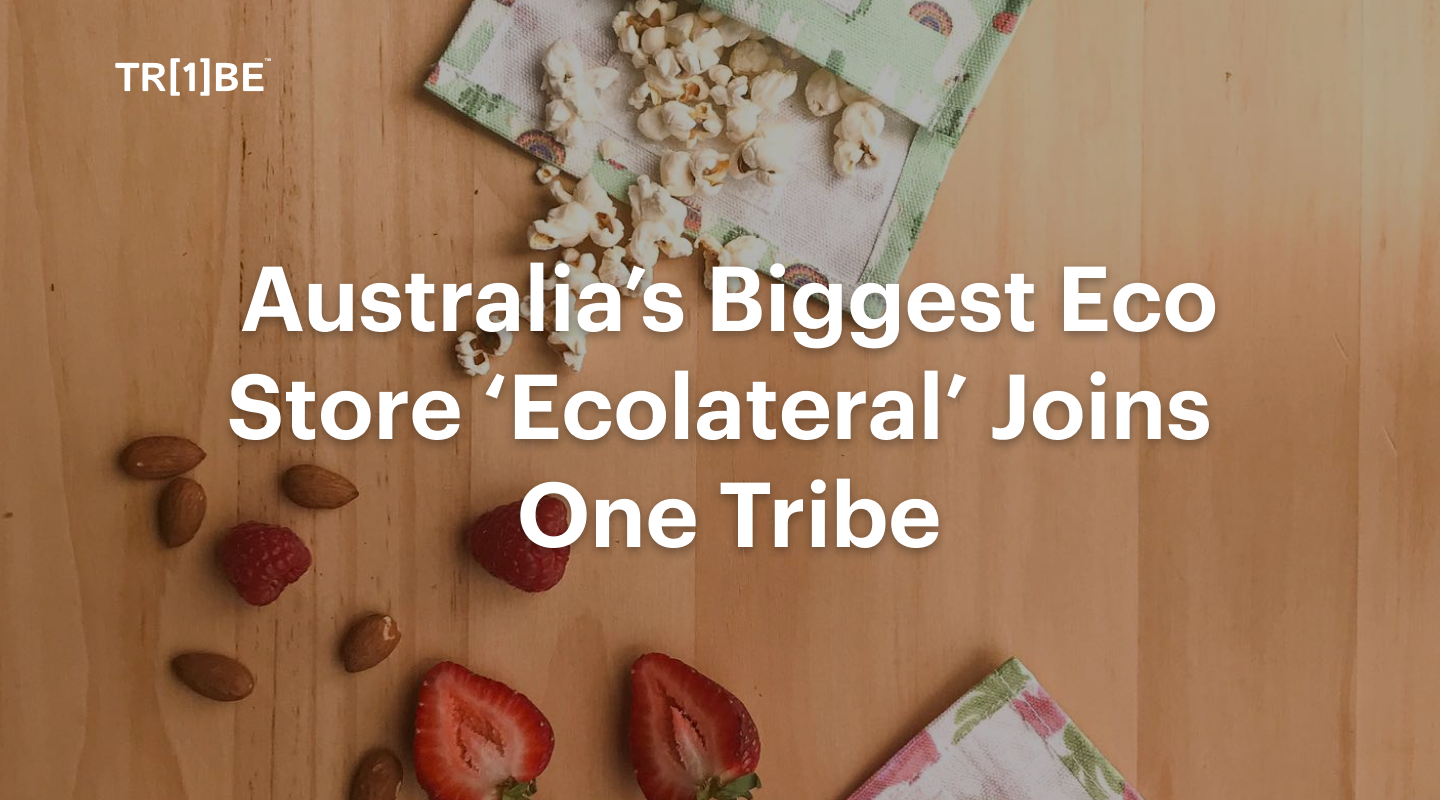
Ecolateral, Australia’s longest-running eco store, recently joined One Tribe to help protect endangered rainforests. The business has an extensive range of eco-friendly products that will now lower emissions and reduce their carbon footprint.
In addition to their choice to protect rainforests, Ecolateral also encourages customers to become more zero waste and engage with the refill movement.
Continue reading to learn about their journey and what their partnership with One Tribe means for the protection of the planet.
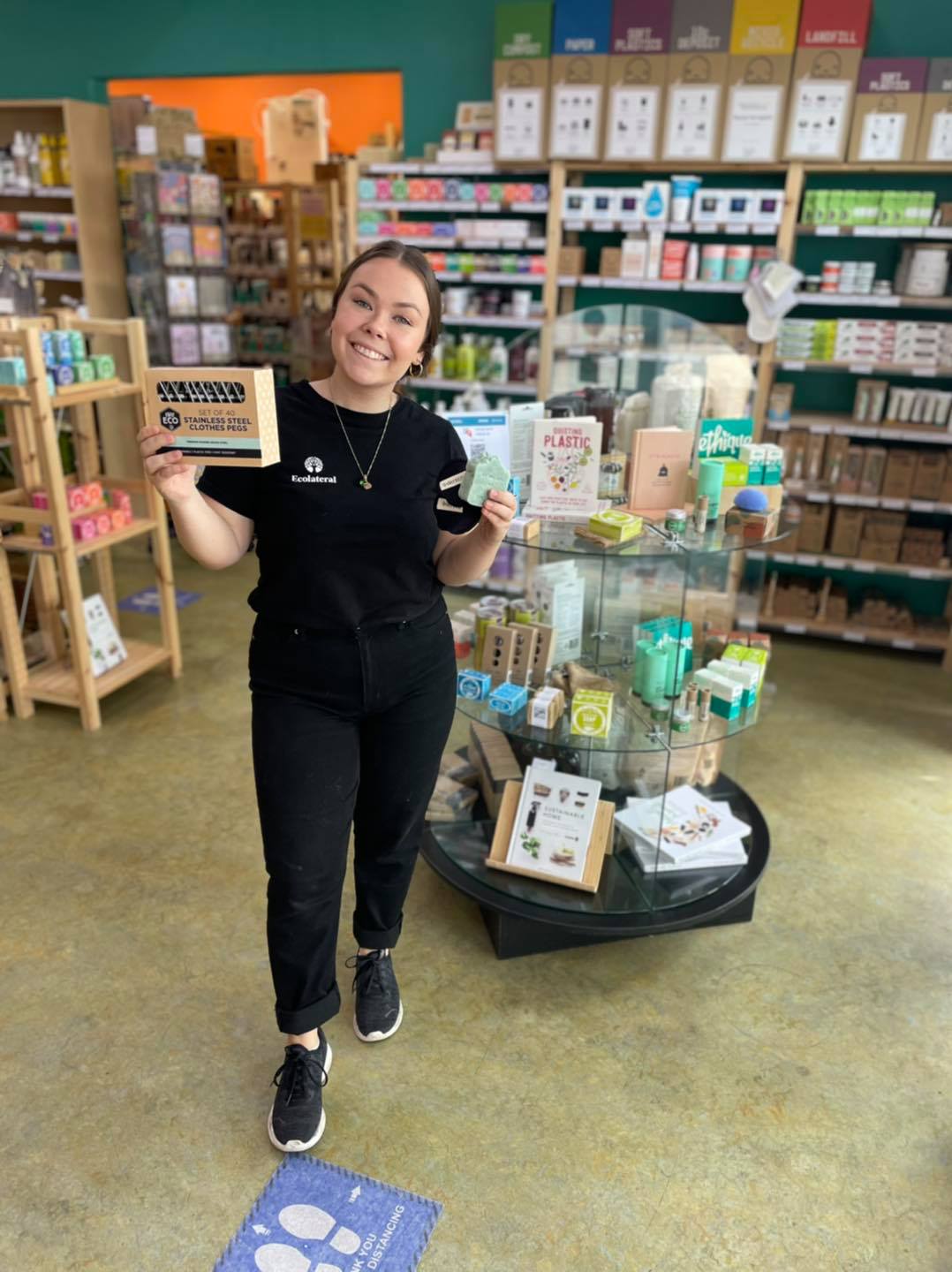
Ecolateral was born in 1994 when a small shop appeared almost out of nowhere in Murray Bridge, a regional South Australian town. The shop was ahead of its time, introducing a range of resources and tools designed to help eco-warriors down the path of reducing, reusing, and recycling.
This store was called ‘Waste Not Want Not Eco Shop’. After some time in Murray Bridge, the founders at the time moved the store to a brand new location in Goodwood. Here they were able to share their ecotools with a larger audience.
Over the past 27 years, the store has been passed down to a couple of owners and eventually moved again to its current location in Blackwood.
The business was purchased by its current owners in 2018, and they saw an opportunity to grow the business so it could reach even more people. It quickly became Adelaide’s most respected eco store. One of the Owners, Liddy, decided to retire in 2019 and the future of the store was determined during a chance meeting between her and one of the new owners, Jamie. She had been searching for someone who shared her values and care for the planet.
Liddy was thrilled when Jamie expressed an interest in taking on Ecolateral. Shortly after acquiring the new shop, Jamie decided to share the Ecolateral name with the Blackwood shop. It was then that ‘Waste Not Want Not Eco Shop’ became known as Ecolateral Blackwood. Currently, they have four locations in Blackwood, Magill, Adelaide City, and Brighton.
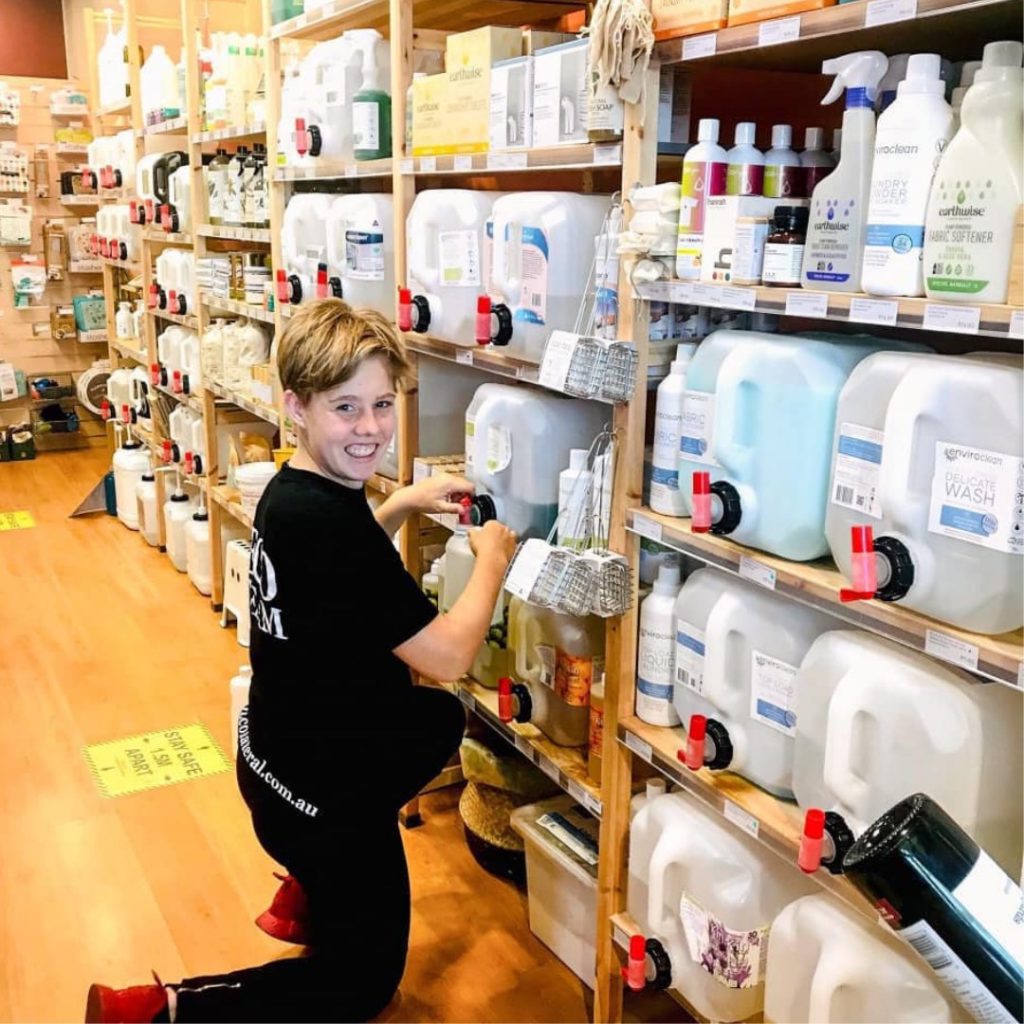
Ecolateral’s vision is to provide people with the resources and tools to adopt a more eco-conscious lifestyle. They feel this is the first step in helping inspire future generations of Australians to venture the path to becoming zero-wasters.
Their main goal? To see Australia become a zero-waste country and eliminate landfills.
They understand the heroes in this vision are the people who came before and hope to bring back many of their philosophies and mindsets. Ultimately, they want the community of people now to rise and spread the message of plastic-free, sustainable, zero-waste living. Ecolateral believes its role is to spread awareness of environmental issues and the potential solutions and provide the best eco-friendly products in its eco-store. They try to do this affordably and invite people to take their first steps with them.
“The eco-warrior journey is one that will not only change your impact on the environment, it will change your heart and positively impact your family for generations to come. Go out and make a difference.”
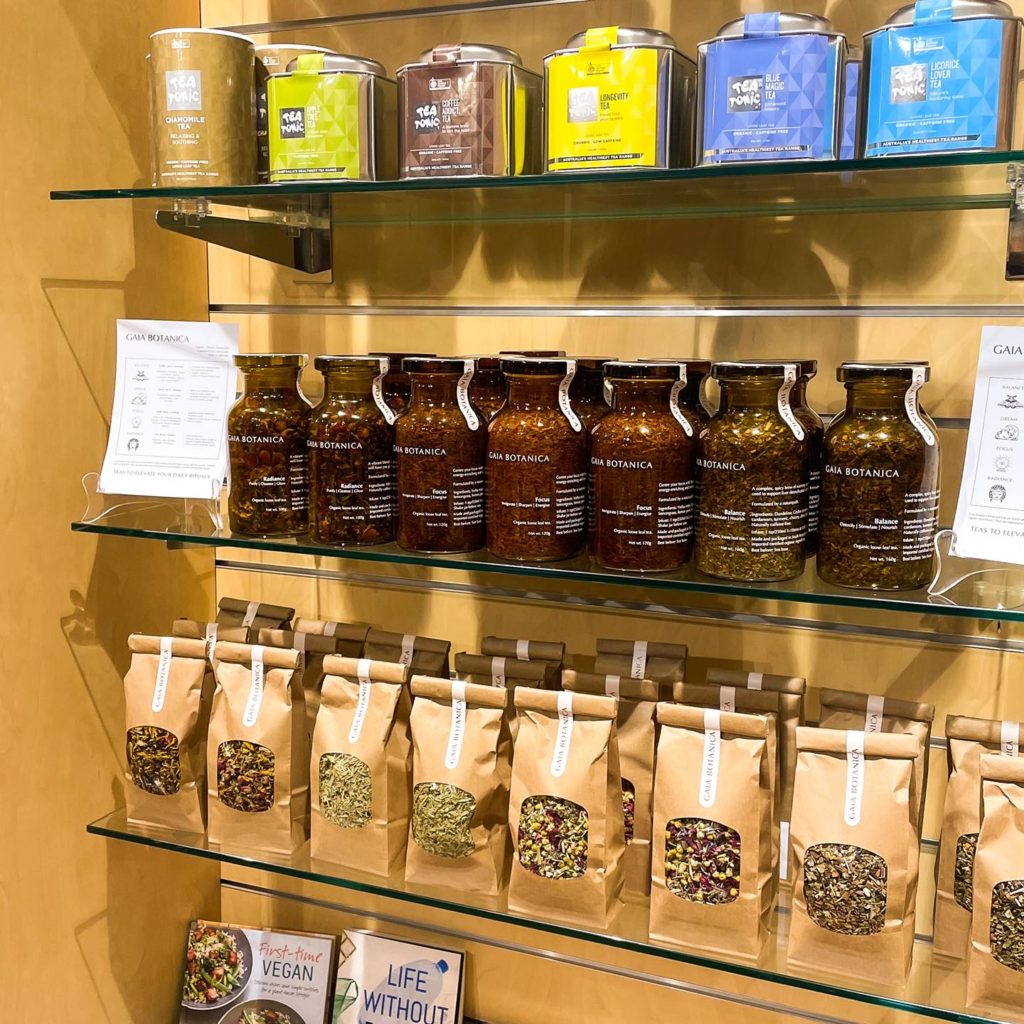
Since 1994, Ecolateral has been educating people in Australia on how to lead less wasteful lifestyles. The brand is incorporating many eco-conscious practices and continuously working to become even more eco-friendly. One of their most effective sustainability practices is the products they sell.
They sell zero waste products under numerous categories, including on the go, home and garden, beauty, food and health, and baby and kids. In addition, Ecolateral has several slow fashion items to encourage people to engage with the circular economy and buy less and treasure for longer.
Their product line is sourced from remarkable sustainable brands such as BioBag, Bamboo Textiles, 4MyEarth, Dr Organic, If You Care, KeepCup, Tru Earth, and more. All of these businesses are on the same mission to make the world a better place by empowering people to make positive changes within their lives.
Ecolateral is very strategic in selecting products to be sold in their stores. They strictly support the sustainable use of our Earth’s resources. For this reason, they look for specific criteria when determining whether a product/brand is suitable for their store.
What makes a product eco-friendly?
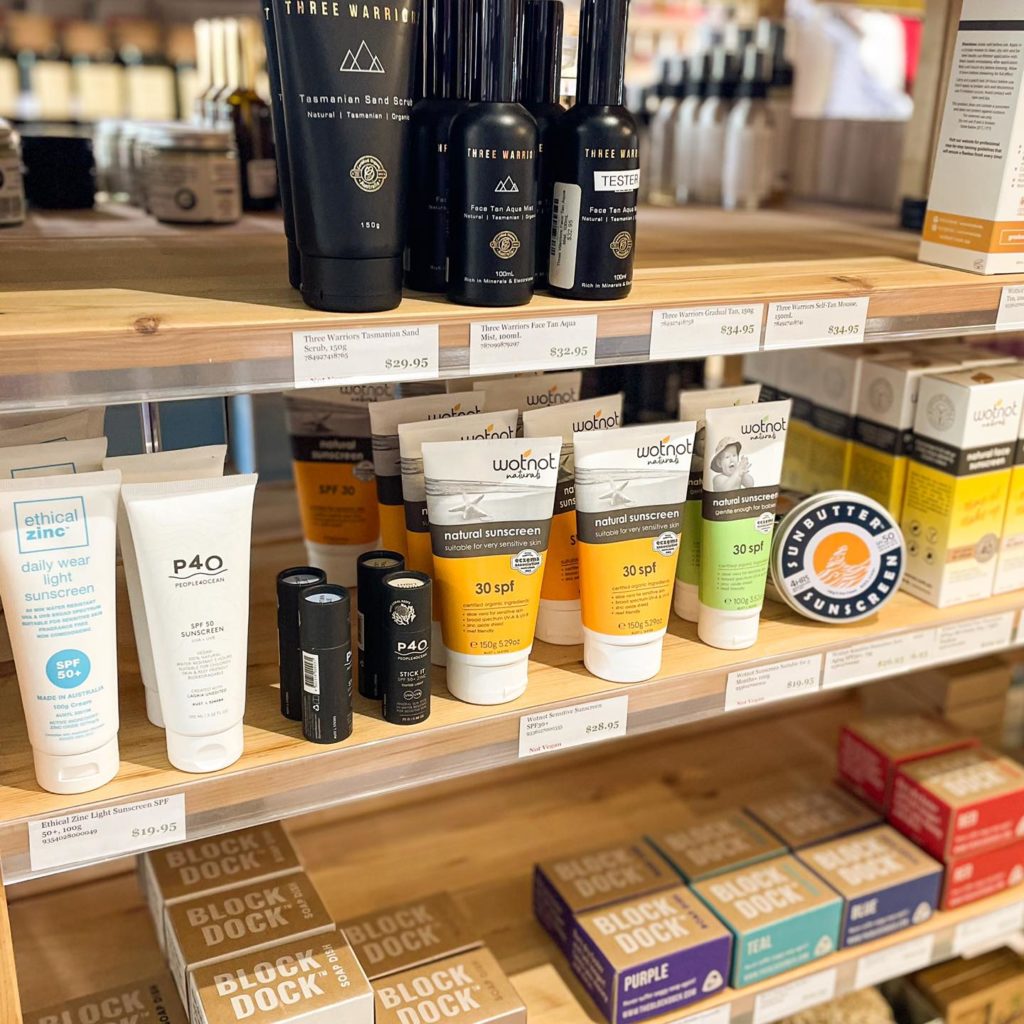
The environmental impact of Ecolateral is always on the forefront of the owner’s mind. Retail is recognised to be a resource-heavy industry. It requires many steps that can harm the planet.
As a result, the owners of Ecolateral are continuously auditing their processes and systems to see where they can improve, lower their carbon footprint and increase their environmental sustainability. So far, they have implemented many environmentally-conscious practices to help them reach their objectives.
These include ensuring regular communication with their manufacturers and suppliers to make sure the environmental impact of their supply chain is constantly reduced. However, there is much more going on than that, so let’s dive into some of the eco-friendly practices they are incorporating below.
All Ecolateral’s website orders are shipped in either recycled cardboard boxes with paper tape or entirely compostable post satchels. Additionally, their packing slips are printed on 100% recycled paper. In most cases, their online parcels are also shipped carbon neutral with Australia Post.
Another essential practice Ecolateral is engaging in is minimising and controlling their waste where possible. They have partnered with Terracycle and actively recycle multiple waste streams, with the byproduct of their business getting diverted to Redcycle and EastWaste via their recycling programmes. In addition to these schemes, they try to reduce their waste.
For example, any commercial printing they get done, they print on 100% post-consumer recycled card/paper using vegetable-based inks. However, they are working towards becoming entirely paperless. In addition, Ecolateral repurposes and recycles its bulk refill containers at the end of their lifespan. They also compost with a bokashi composting system in their staff room.
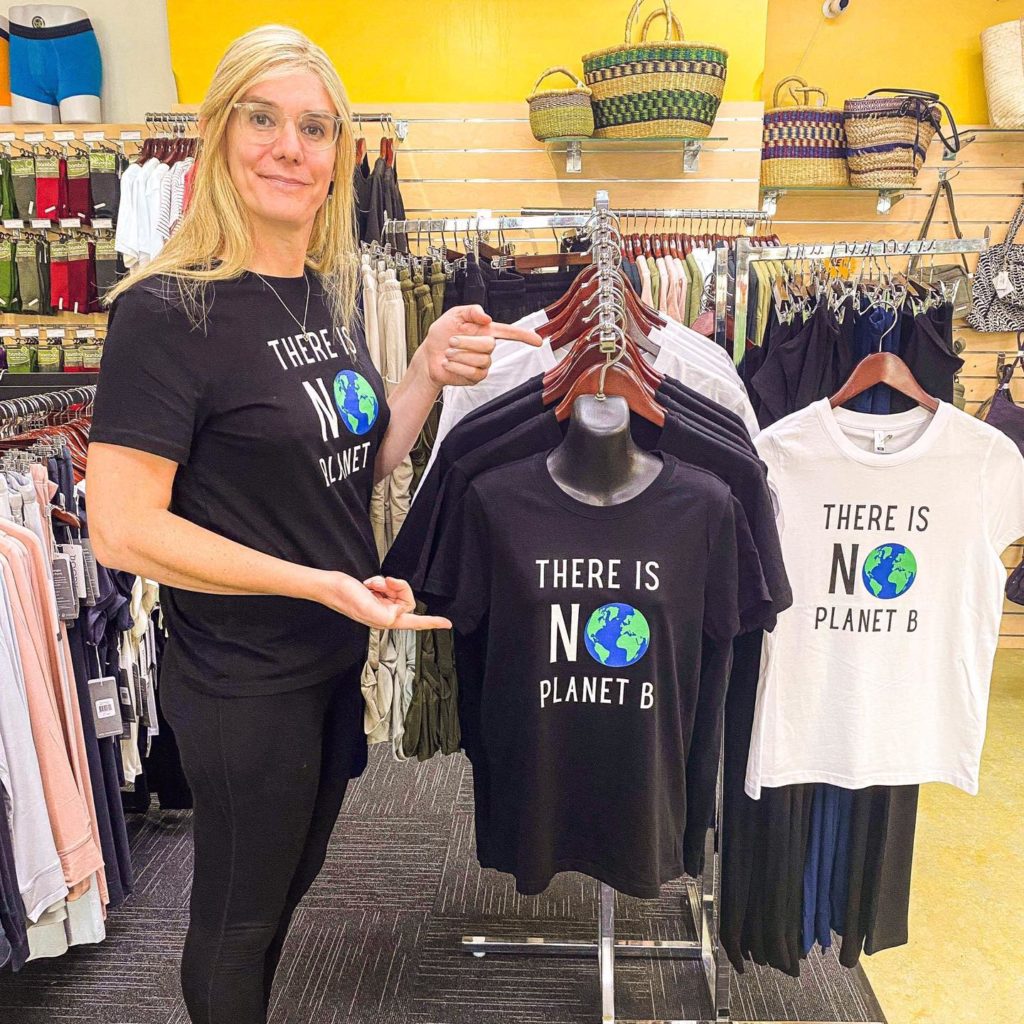
Ecolateral is also working to save energy where possible and make it green! They use 100% carbon neutral and renewable energy. They are recognised by the Australian Government GreenPower initiative for this.
When it comes to saving, any lighting they do have to leave on after-hours is on a timer switch and shuts off by 11 pm. When it comes to company cars, they are both plug-in hybrid electric cars. Their team are also earth-minded hippies who drive small, fuel-efficient vehicles. Their CEO even rides a motorbike to lower her environmental footprint.
Ecolateral began a challenging journey in 2019 to become a B Corp Certified business. They were granted certification, which means they are using their business as a force for good.
The certification measures the company’s real environmental and social impact. It verifies that the business meets the highest accountability, transparency, and performance standards.
Ecolateral has partnered with numerous organisations to serve as drop-off points around Adelaide. This is specifically for items that are not easily recycled in home bins. They have a helpful guide on their website to help people identify what is recyclable and what isn’t.
As mentioned above, Ecolateral does not just sell zero waste and eco-conscious products; they are also fuelling the refill movement. They are doing this through their refilling service. Customers can come to this eco store and refill their hand wash, body wash, shampoo, conditioner, cleanser, cleaning products, dental tabs, and much more!
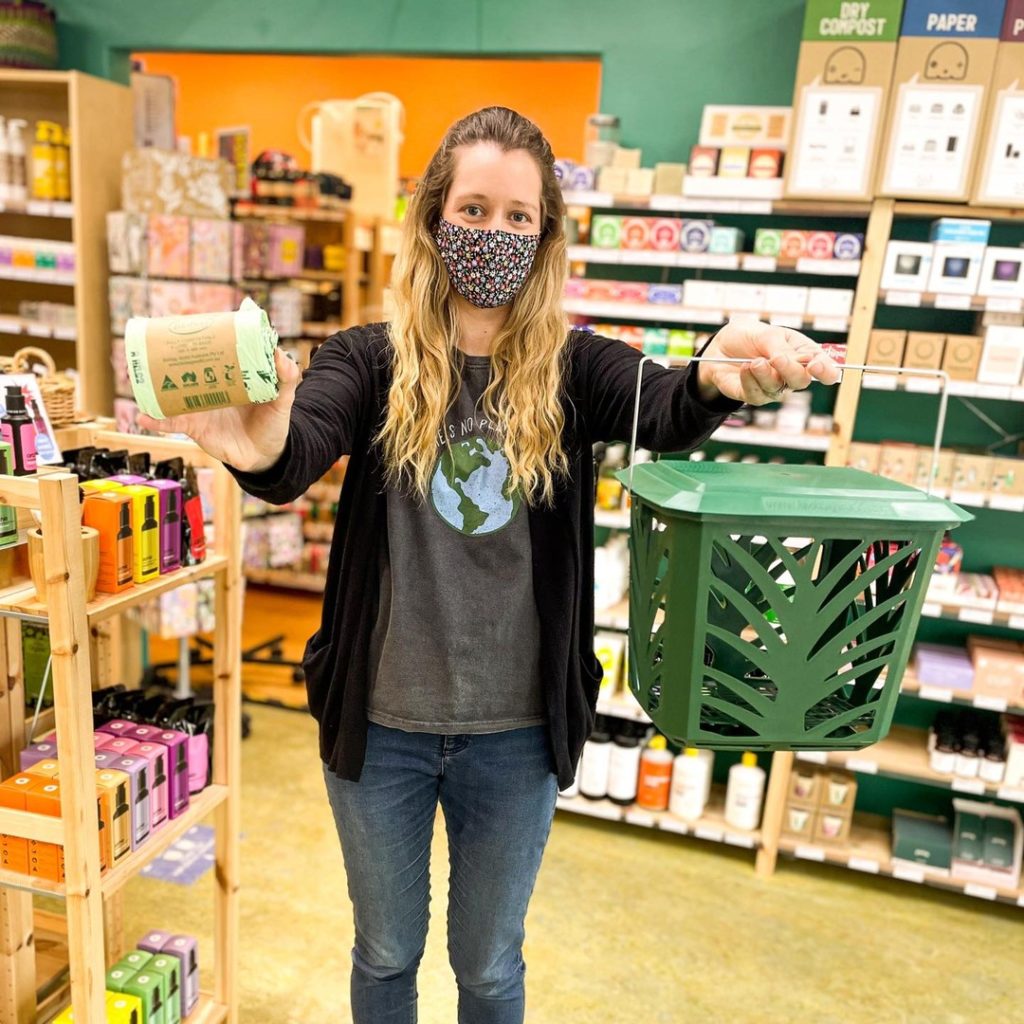
Ecolateral has already implemented many sustainable practices to educate and empower people to lead more eco-friendly lifestyles. However, they are always looking to do more and improve their operations to be more environmentally sound.
One of their latest initiatives is partnering with us at One Tribe. We are now working with them to protect rainforests with every purchase their customers make. A true climate action hero, when customers purchase from their eco stores, they will automatically improve the carbon footprint of their investment.
A portion of the funds will go to rainforest protection projects. Some of these include stopping deforestation at the edge of the Bolivian Amazon and protecting the Leuser Ecosystem on the Island of Sumatra. Already, Ecolateral has protected over 20,000 trees and counting!
One Tribe are thoroughly impressed by everything Ecolateral has done to build a sustainable business. We are honoured to partner with them and are inspired by their mission and commitment to the planet.
Other zero waste, refill, and eco stores should take inspiration from ever the eco-conscious practice they have implemented in their business. They are the perfect example of how sustainability is more than just a business’s product offering and service.
If you have a business and would like to take your first steps to become more sustainable, check out our partnership programme. It allows you to do what you do best while taking action to save the planet.
eco-friendly shop, eco-friendly shops, eco-friendly shops in Australia, eco-friendly shops near you, Ecolateral, One Tribe, Ecolateral works with One Tribe, protect rainforests, how to protect rainforests?, protect endangered species, how to protect endangered species?, eco-friendly products, products that reduce CO2 emissions, products that reduce carbon footprint, zero waste, how to become a zero-waste? Murray Bridge, reduce, reuse, recycling, options to reuse, options to recycle, recycled products, Goodwood, eco-tools, what are eco-tools?, Blackwood, care for the planet, options that care for the planet, products that care for the planet, Adelaide City, Brighton, Australia’s oldest green shop, what is Australia’s oldest green shop? zero waste country, eliminate landfill, Green Warrior Journey, Green Warrior, how to be a Green Warrior?, vegan products, cruelty free products, sustainable products, zero waste packaging, locally sourced products, reusable products, good for the environment products, environmental policy, what is an environmental policy? suppliers with an environmental policy, reduce your carbon footprint, how to reduce my carbon footprint?, sustainable shipping, energy saving, energy saving, green energy, 100% carbon neutral energy, renewable energy, B Corp Certification, B Corp, B Corp certified company, which companies are B Corp?, companies that do good, B Corp company list, environmental impact, product refill service, product refill service in Australia
One Tribe is a Climate Action Platform enabling businesses and their customers to make a positive environmental impact.
Eric currently works as an independent consultant at the intersection of nature and climate, focused on catalysing market and non-market solutions to drive the just transition.
He previously was Head of Product at Earthshot Labs, supporting nature conservation and restoration projects across the global south secure project finance. Prior to Earthshot Labs, Eric led nature-based carbon project development for Gorongosa National Park in Mozambique and founded the Carbon Cooperative, a global alliance of leading nature conservation and restoration practitioners exploring carbon finance. After serving in the Peace Corps in Mozambique out of university, he spent much of his 20s working in community-based conservation and ecosystem restoration efforts in Sub-Saharan Africa interspersed with two startup ventures as co-founder and CEO of a mental health tech startup and COO of a sustainable coffee company. Eric has a dual Masters in Environmental Engineering and Environmental Policy from Stanford University where he was a NSF Graduate Research Fellow and a BS in Environmental Engineering from Tufts University.
Alan is a risk management thought-leader, superconnector, and FinTech pioneer. His mission is to enable an Earth Positive economy which includes nature in global accounting systems.
Alan is Founder of Generation Blue, a venture studio dedicated to planetary game changers powered by exponential technologies. Previously, Alan established Natural Capital Markets at Lykke AG, pioneering blockchain based forestry and carbon backed tokens. Alan has over two decades of risk management experience advising global financial institutions, and was a founding member of the RiskMetrics Group, a JPMorgan spin-off. Alan is an investor and advisor to regenerative impact ventures, including TreeBuddy.Earth, Regenativ, and Vlinder Climate.
Lori Whitecalf made history when she became the first woman to be elected Chief of Sweetgrass First Nation in 2011. She served three terms of office from 2011-2017.
Lori took a two-year hiatus from leadership to expand the family ranch and serve as the FSIN Senior Industry Liaison. She was re-elected on November 29. 2019 and again on November 30, 2021, as Chief of Sweetgrass. Chief Whitecalf practises a traditional lifestyle of hunting, fishing and gathering. She currently sits on the following boards: Saskatchewan Indian Institute of Technology, FSIN Lands and Resource Commission, Battle River Treaty 6 Health Centre and Battleford Agency Tribal Chiefs Executive Council, FSIN Women’s Commission.
Tina is the Chief Business Officer for MLTC Industrial Investments, the Economic Development arm of the Meadow Lake Tribal Council. She has a diverse background of experience. Having spent 15 years as a municipal Chief Operating Officer, 20 years involved in Saskatchewan’s Health Authority Board Keewatin Yatthe and 9 years with Northern Lights Board of Education.
She continues as a Board Member with Beaver River Community Futures supporting small business development in her home region. Tina brings a wealth of experience in a variety of fields and many connections to the Indigenous communities of Northern Saskatchewan. In addition Tina holds a BA Advanced from the U of S, a Certificate in Local Government Authority from the U of R and is certified as a Professional Economic Developer for Saskatchewan and a certified Technician Aboriginal Economic Developer (TAED).
Tootoosis’ career spans 40+ years in HRM, political leadership, and Indigenous economic development, as a dedicated bridge builder and advocate for Indigenous causes.
As a key member of the Saskatoon Regional Economic Development Authority (SREDA) team since 2021, he develops strategies for the Truth and Reconciliation Commission final report and Call to Action #92.
He is a graduate of the First Nations University of Canada and a certified Professional Aboriginal Economic Developer. Spearheading various community initiatives while serving as a Chair of the SIEDN while directing ILDII and WIBF. Founder of MGT Consulting Tootoosis is based in Saskatoon, Treaty Six Territory.
Cy Standing (Wakanya Najin in Dakota) has a long and distinguished career including serving overseas as an Electronics Technician in the Royal Canadian Air Force, former Chief of Wahpeton Dakota Nation, former Vice Chief of the Federation of Saskatchewan Indigenous Nations (FSIN), past Executive Director of Community Development Branch of the Department of Northern Saskatchewan as well as an Order in Council appointment to the Federal Parole Board.
Mr. Standing has served as a Director on many Profit and Non-Profit Corporate Boards, including serving as a Director for Affinity Credit Union with assets of over six billion dollars as well as IMI Brokerage and Wanuskewin and is currently a member of the One Tribe Indigenous Carbon Board.